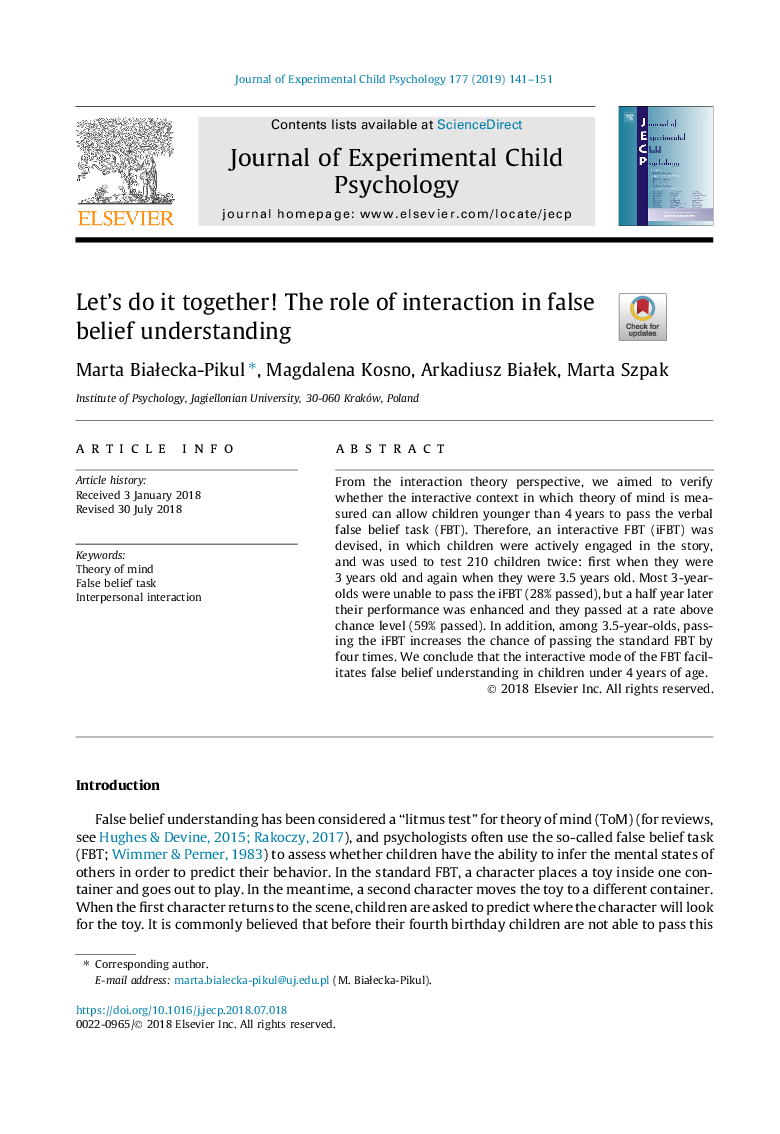| Article ID | Journal | Published Year | Pages | File Type |
|---|---|---|---|---|
| 10140339 | Journal of Experimental Child Psychology | 2019 | 11 Pages |
Abstract
From the interaction theory perspective, we aimed to verify whether the interactive context in which theory of mind is measured can allow children younger than 4â¯years to pass the verbal false belief task (FBT). Therefore, an interactive FBT (iFBT) was devised, in which children were actively engaged in the story, and was used to test 210 children twice: first when they were 3â¯years old and again when they were 3.5â¯years old. Most 3-year-olds were unable to pass the iFBT (28% passed), but a half year later their performance was enhanced and they passed at a rate above chance level (59% passed). In addition, among 3.5-year-olds, passing the iFBT increases the chance of passing the standard FBT by four times. We conclude that the interactive mode of the FBT facilitates false belief understanding in children under 4â¯years of age.
Related Topics
Social Sciences and Humanities
Psychology
Developmental and Educational Psychology
Authors
Marta BiaÅecka-Pikul, Magdalena Kosno, Arkadiusz BiaÅek, Marta Szpak,
